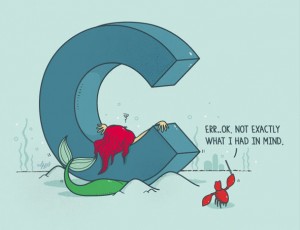 Those two concepts don’t often commingle, do they? In fact, the last politician I’ve ever heard of to have any semblance of this all-too-rare quality while in office was Abraham Lincoln. And I’m not talking about surface, for-the-camera humility; rather, I mean the kind that extends to every pocket of his platform — even the most earth-shakingly frightening of pockets. I mean the kind that allows a politician to say, “I have no idea how I’m going to handle this.” (Can you imagine a governor or senator saying that today?)
Those two concepts don’t often commingle, do they? In fact, the last politician I’ve ever heard of to have any semblance of this all-too-rare quality while in office was Abraham Lincoln. And I’m not talking about surface, for-the-camera humility; rather, I mean the kind that extends to every pocket of his platform — even the most earth-shakingly frightening of pockets. I mean the kind that allows a politician to say, “I have no idea how I’m going to handle this.” (Can you imagine a governor or senator saying that today?)
Indeed, we expect our politicians to never say those three deadly words: I don’t know. If they don’t have a specific plan for every issue on every level, down to the last detail, well…they might not get our vote, but they’ll surely receive our enmity in spades. Is that realistic or fair, given today’s myriad problems? Regardless, to quote EW&F: that’s the way of the world.
Back to Honest Abe. This isn’t an attempt to dissect his complex personality or paint too bright a picture of his deeds. Truth is he was flawed, like the rest of us. He had a morbid side, and was given to bouts of crippling depression. When his estranged father lay dying, and asked to bid his son farewell, Lincoln responded that to make the 80-mile trip to say goodbye would likely not solve anything or make things more pleasant between them, so he refused. He didn’t attend the funeral, either. A bit cold.
But the man could take a punch, lemmetellya. He must have lost in a dozen straight elections, and endured the mob-baiting insults of Frederick Douglas in the now-famous debates. He was criticized as weak, wishy-washy, and an assumed friend to Negroes at a time when it was decidedly unpopular to be so. Fortunately, Douglas’s bungling of the debates in the late going eventually fractured the Democratic party on the slavery issue, and paved the way for Lincoln’s ascent to the White House.
Again, I digress. Back to the subject of humility and admission of human frailty in the face of extraordinary responsibility. In response to a collection of speeches he received from a longtime lawyer friend and kindred spirit with regard to emancipation, Lincoln addressed the man’s assertion that slavery could be abolished peacefully:
You are not a friend of slavery in the abstract. [Y]ou spoke of “the peaceful extinction of slavery” and used other expressions indicating your belief that the thing was, at some time, to have an end. Since then, we have had thirty-six years of experience, and this experience has demonstrated, I think, that there is no peaceful extinction of slavery in prospect for us. The signal failure of Henry Clay, and other good and great men, in 1849, to effect [sic] anything in favor of gradual emancipation in Kentucky, together with a thousand other signs, extinguishes that hope utterly.
When we were the political slaves of King George, and wanted to be free, we called the maxim that “all men are created equal” a self-evident truth; but now, when we have grown fat, and have lost all dread of being slaves ourselves, we have become so greedy to be masters that we call the same maxim “a self-evident lie.”
The Autocrat of all the Russias [Alexander II] will resign his crown, and proclaim his subjects free republicans sooner than will our American masters voluntarily give up their slaves.
Our political problem now is “Can we, as a nation, continue together permanently — forever — half slave, and half free?” The problem is too mighty for me. May God, in his mercy, superintend the solution.
Of course, this was a private letter to a friend, so some slack is warranted, but Lincoln’s assessment of the situation would soon filter out to the nation in the form of statements that reassured no one. He tried to “play” both sides of the issue, by placating the North with talk of abolishing slavery altogether, while coddling the South with softer assertions to initially only limiting it. It made no one happy, and he was very unpopular. In fact, southern states began grumbling about secession before Inauguration Day.
I keep dancing off in other directions, sorry. My point (and I do have one) is that Lincoln, while at times playing the role of “politician” quite well, openly second-guessed himself, and through craftiness or gut-level honesty or guile or whatever, gave the American people the impression that he was struggling with these issues right alongside them. Who does that nowadays? Nobody.
Truth be told, I wouldn’t mind seeing a bit more of that type of transparency in 2014. Lord knows that with the exception of slavery, our issues are just as volatile — if not more so — than those of Lincoln’s era. Where is the politician who says, “People, I’m struggling with this, too. Help me find the right path”? He doesn’t exist, because he’d never win an election. Worse yet, who’d finance that campaign? (And, as we all know, the money takes priority first, middle and last.)
Who knows? Maybe a grass-roots, humble man or woman, willing to learn and question, is the necessary catalyst for a retooling of our bloated, strained, tired, sometimes shiftless and aimless government.
And that is what I wonder this day. Sidebar: I weeded my back yard yesterday, and it illustrated for me in no uncertain terms how desperately out of shape I am. Ouch.














